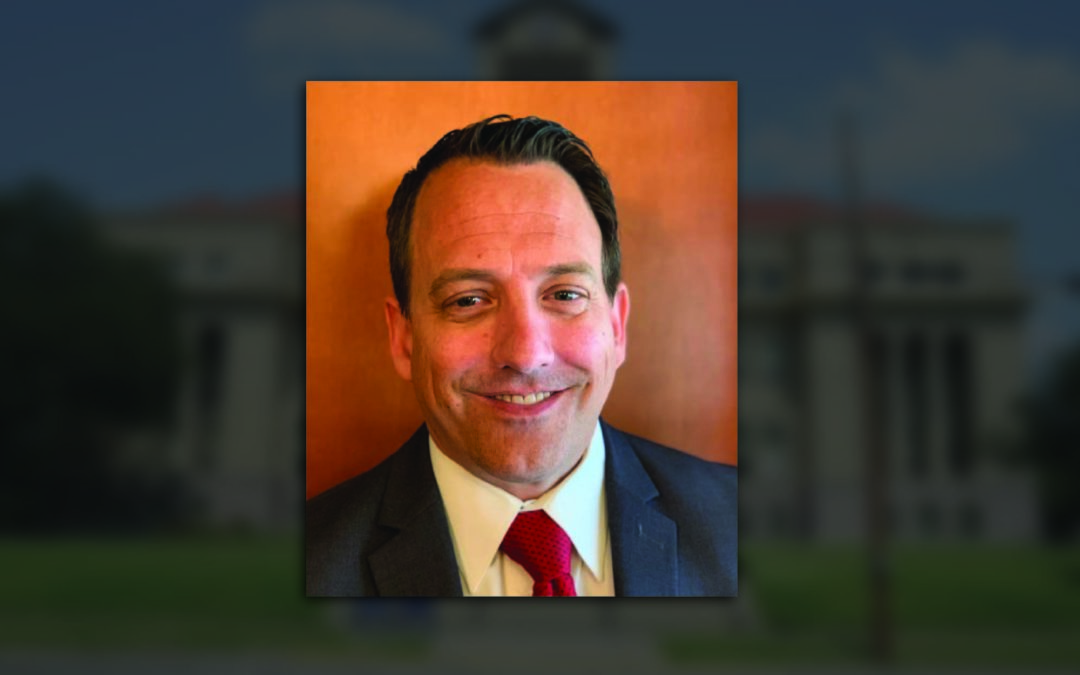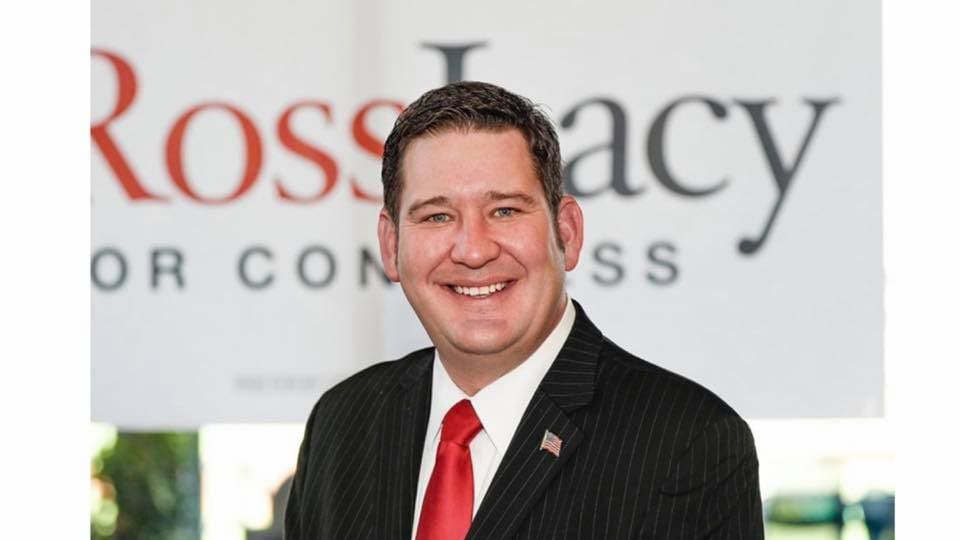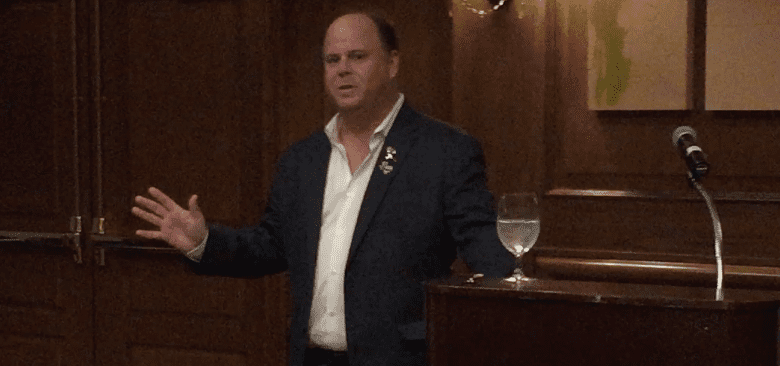As Texas begins implementing a buoy barrier to deter illegal border crossers, Maverick County Democrats are protesting.


As Texas begins implementing a buoy barrier to deter illegal border crossers, Maverick County Democrats are protesting.

“I was told by Dixon, ‘Be nice to him; he’s going to help get me elected.’”

Texas Scorecard interviews congressional candidate J. Ross Lacy on his bid to represent Texas’ 11th Congressional District.

Challenger Chris Putnam points to opponent’s poor fiscal record and lack of transparency in congressional primary.

A congressional forum sparked a flurry of legal threats and accusations between Tom Green County GOP Chair Jeff Betty and congressional candidate Casey Gray.
The city council voted to discriminate against the popular fast food chain.
“No teacher should attempt to indoctrinate a child to their ideology, no matter who is in the White House.”
HISD’s superintendent search has been stopped by the TEA.
Grapevine-Colleyville Independent School District Board President Lisa Pardo admitted her husband took down a yard sign of Colleyville Mayor Pro Tem Bobby Lindamood Jr.
Just a few short years after the passage of a billion-dollar bond, a Harris County school district is back asking voters for more.
City council doesn’t like the idea of asking citizens for more of their money.
Dallas City Councilmen, including mayoral candidate Scott Griggs, file to have city vote on a harmful anti-worker mandate.
Dallas City Council hears complaints of higher costs, lack of voter participation with reforms.
New rules and penalties could be coming to Austinites who ride scooters.
University of North Texas is attempting to forcefully take over the properties of longtime local businesses.
In Dallas County, total property values are up 16 percent, with about half of that attributable to increases on existing properties, according to a Dallas Morning News report.
 Although Collin County has not posted 2007 average home values yet, the Dallas Morning News reports that total appraisals are up 47 percent in Celina , 38.9 percent in Prosper, and 30.3 percent in Melissa, all of which are in the northern part of the county. Assuming half is due to new construction, that is still 15 to 24 percent increases in average home value.
Although Collin County has not posted 2007 average home values yet, the Dallas Morning News reports that total appraisals are up 47 percent in Celina , 38.9 percent in Prosper, and 30.3 percent in Melissa, all of which are in the northern part of the county. Assuming half is due to new construction, that is still 15 to 24 percent increases in average home value.
If you've ever been to Hitchcock, which is situated in the shadows of Texas  City and its effusive refineries, despite the proximity to the Gulf of Mexico, you might be forgiven for not having thought you were in Palm Beach. Hitchcock may not seem like a ritzy resort rolling in money, but don't tell that to the Galveston County Tax Appraiser. It turns out that property values in Hitchcock are increasing by 27.41 percent this year, according to a Galveston Daily News report.
City and its effusive refineries, despite the proximity to the Gulf of Mexico, you might be forgiven for not having thought you were in Palm Beach. Hitchcock may not seem like a ritzy resort rolling in money, but don't tell that to the Galveston County Tax Appraiser. It turns out that property values in Hitchcock are increasing by 27.41 percent this year, according to a Galveston Daily News report.
The San Antonio Express-News reports that many small business owners around th e state are facing huge bills due under the new state gross receipts tax which starts in 2007, with the first payment to the state due by May 2008. The article notes that many firms are seeing a tenfold increase in tax due as compared with the franchise tax, which it replaces.
e state are facing huge bills due under the new state gross receipts tax which starts in 2007, with the first payment to the state due by May 2008. The article notes that many firms are seeing a tenfold increase in tax due as compared with the franchise tax, which it replaces.
 The Texas Department of Agriculture will this Sunday serve up a heain' helpin' of taxpayer dollars as the chief sponsor of an artsy "wine dinner" in Austin. Were you invited? Me, either…
The Texas Department of Agriculture will this Sunday serve up a heain' helpin' of taxpayer dollars as the chief sponsor of an artsy "wine dinner" in Austin. Were you invited? Me, either…
According to a Dall as Business Journal article , the owners of several Dallas-area shopping centers, including Highland Park Village and Preston Trail Plaza, are suing the Dallas Central Appraisal District and the Dallas Appraisal Review Board, saying the method the entities use to calculate tax appraisals violates the Texas Constitution.
as Business Journal article , the owners of several Dallas-area shopping centers, including Highland Park Village and Preston Trail Plaza, are suing the Dallas Central Appraisal District and the Dallas Appraisal Review Board, saying the method the entities use to calculate tax appraisals violates the Texas Constitution.

Besides just bad philosophy, one of the worst contributors to government growth is our misplaced emphasis on defining success by activity. When you stand on the plains and look to the horizon, a great cloud of dust can be either an army purposefully on the move, or a lone idiot riding his horse in circles.Â
Too often, we are just interested in seeing a great cloud of dust, and not interested enough in the results. In every debate in Austin (and in Washington) the discussion centers too much on "how much we have/are/will spend" and not nearly enough on "what we have/are/will accomplish."
F ound this revealing tidbit on the Austin American-Statesman's entertainment pages:Â
ound this revealing tidbit on the Austin American-Statesman's entertainment pages:Â
Those hotel occupancy taxes in Texas’ big cities are so high they’ll give you a nosebleed. Example: My $279 stay at the lovely Granduca Hotel in Houston a few days ago carried $46.93 in occupancy tax: That’s 6 percent for the great State of Texas, 7 percent for the city, 2 percent for Harris County and another 2 percent for the Houston-Harris County Sports Authority, the entity that builds stadiums.
There was once a time when Republicans were known as the tax-cutters; people who – if nothing else – would work to make sure the taxpayers’ money stayed in the taxpayers’ wallet (as State Rep. Rob Eissler likes to say).
That was then, this is now. State Rep. Fred Hill (R-Richardson) wants to raise your local taxes. Sure, he wants to start with the Dallas-Fort Worth area. But don’t worry; this new tax will spread like a virus to every city in Texas. He is pushing a bill to let those cities raise their sales tax to fund mass transit. (Never mind that mass transit is usually spelled “B-O-O-N-D-O-G-G-L-E.†or, in the original French, “P-O-R-Kâ€)
The McA llen Monitor reported that the new $150 billion House budget for the 2008-09 biennium includes some arguably pork barrel expenditures – most of those mentioned are earmarks for projects in the Rio Grande Valley. Among the taxpayer-funded projects mentioned are:
llen Monitor reported that the new $150 billion House budget for the 2008-09 biennium includes some arguably pork barrel expenditures – most of those mentioned are earmarks for projects in the Rio Grande Valley. Among the taxpayer-funded projects mentioned are:
The Lone Star Report brings us the following good news:
The House Regulated Industries committee unanimously voted Feb. 21 to  eliminate the Telecommunications Infrastructure Fund (TIF). The tax on consumers’ phone bill was created in 1995 to help wire schools, libraries and colleges for the Internet. TIF was supposed to end after 10 years or after it raised $1.5 billion, whichever came first. However in 2005, the Legislature removed the tax’s expiration date. Since 2003, the tax was used to fund general revenue and is no longer used for its original purpose.
eliminate the Telecommunications Infrastructure Fund (TIF). The tax on consumers’ phone bill was created in 1995 to help wire schools, libraries and colleges for the Internet. TIF was supposed to end after 10 years or after it raised $1.5 billion, whichever came first. However in 2005, the Legislature removed the tax’s expiration date. Since 2003, the tax was used to fund general revenue and is no longer used for its original purpose.